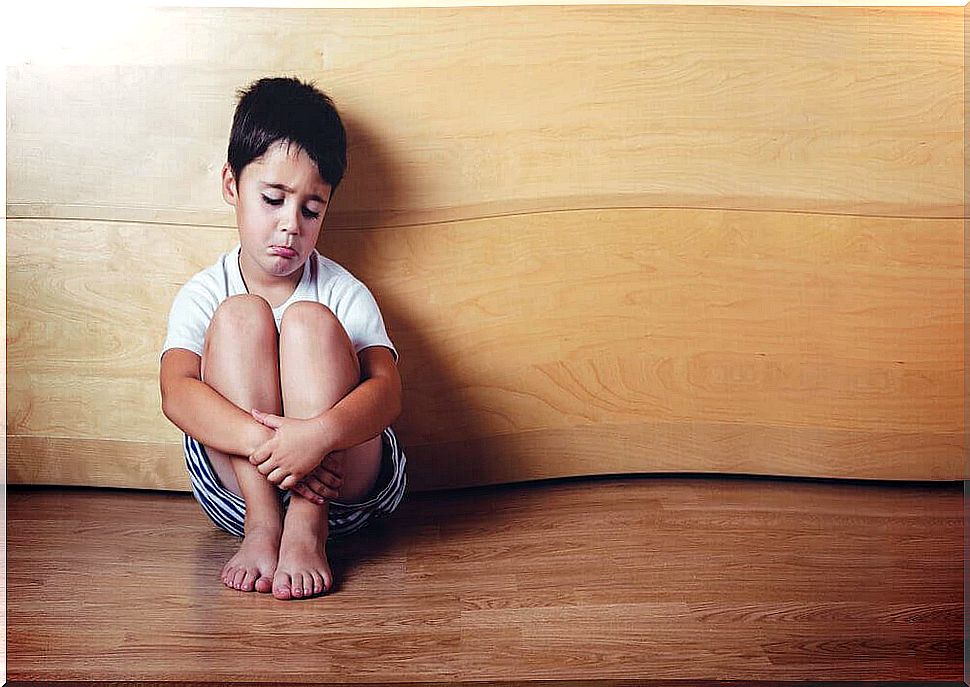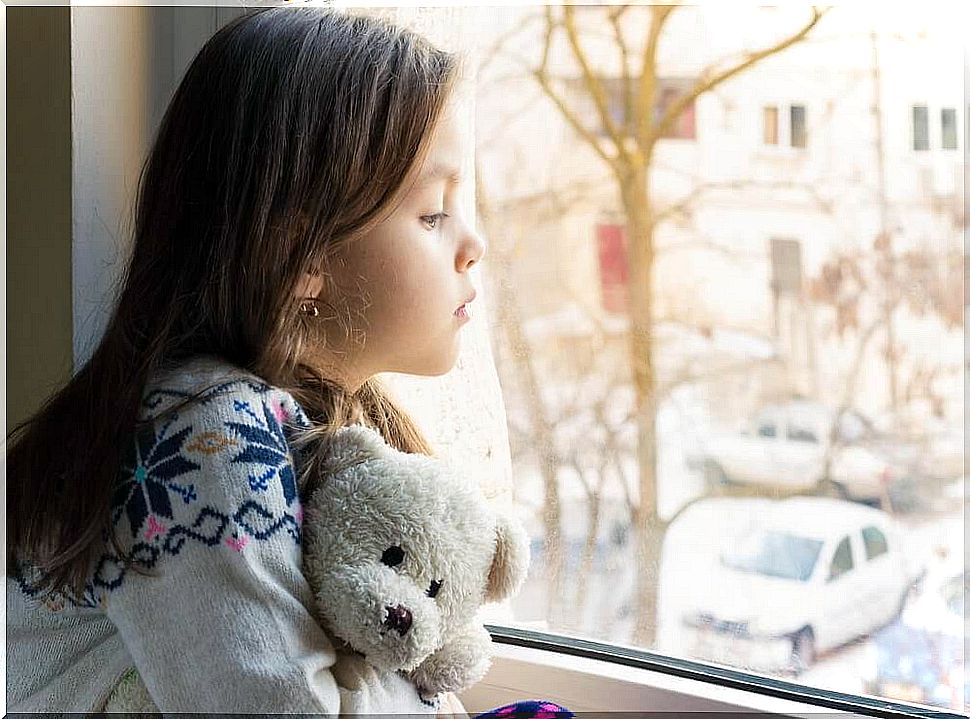6 Signs Of Emotional Deprivation In Children
Imagine not being loved by the most important people in your life. This is how emotionally disadvantaged children feel. Be loving parents and let your children feel how much they mean to you!

Kisses, hugs, caresses and advice. These are all signs of affection parents must show their children in order to prevent emotional deprivation. This is not something you do out of whim or addiction. Because if you show affection to the children, this also contributes to good psychosocial development.
In childhood, one is almost entirely dependent on parents or responsible adults. Not only from an economic or educational point of view, but also in terms of emotional and psychological aspects.
There is nothing better for a child than to experience affection, love and understanding from the parents. This will enable him to grow up in a healthy family environment and develop habits that mimic what he has learned at home.
Even so, many children suffer from a lack of affection, be it from their family or their immediate environment. In this case, consequences of emotional deprivation can arise that directly influence their behavior.
What are the signs of emotional deprivation in children?
During childhood, little ones need evidence of affection from those close to them in order to feel loved and protected. However, as the child gets older, parents tend to show them less affection.

Sometimes long work days and hectic, modern lifestyles lead adults to neglect their family responsibilities. These include gestures of affection that remind children of how important they are to their parents.
Emotional deprivation makes children feel lonely or abandoned all the time. In addition, communication between parents and child is weakened. You may also experience low self-esteem.
To know if your child needs more tokens of love, watch out for the following signs:
- your child is difficult and has problems dealing with other people
- it is always defensive and alert to what is happening around it
- it suffers from childlike stress
- his immune system is weakened by severe depression
1. Disobedience
Because of their emotional deprivation, children have a strong need for attention. In order to be the center of attention, the little ones tend to defy their parents’ instructions. They often behave inappropriately, have tantrums in public places, or suddenly start crying.
Children who crave their parents’ love and attention often make a scene. However, if this does not help you achieve your goal, try it more often and more intensively. Typical characteristics of disobedience in children are:
- unrestrained crying
- aggressiveness
- Anger
- impulsiveness
- Sudden mood swings
2. Aggression
When children are behaving aggressively, it is best to listen to them and give importance to what they say. In this way, they will feel that they are being taken seriously and will have the confidence to tell what is bothering them.

3. Uncertainty
Given the emotional emptiness and lack of affection, the children feel defenseless. You develop a fear of approaching other people. By not feeling safe and constantly fearful for their physical integrity, they are always on the defensive and very alert about what is happening around them. So distrust is a clear sign that something is wrong.
4. Fear
If a child’s emotional deprivation is not treated by a specialist or the child is unable to cope with it, it can create a sense of emptiness and suspicion that will be present in all of the child’s relationships as they grow up.
When children do not receive the affection they expect from their parents and loved ones, they develop a fear of abandonment. This pattern of behavior is difficult to get rid of and it is usually necessary to take the child to a family psychologist or therapist. This will be able to help him overcome his fear and strengthen the relationship between parent and child.
5. Poor academic performance
The lack of attention and affection in children can lead to learning difficulties and a lack of motivation with homework. According to some psychologists, children who suffer from emotional deprivation have language problems and poor academic performance.
It is common for them to take longer than other children to develop their language skills. They also often have poor social skills. They hide their feelings and usually elude any kind of affection from the people around them.
6. Dependence on electronic devices
Some parents choose to let the “digital nanny” take care of their children. This tendency for children to entertain themselves through electronic devices or television creates a kind of impersonal upbringing. This traps them in a technological bubble that prevents any human interaction.

Conclusion
Emotional deprivation makes children fearful of losing loved ones. As a result, they are always vigilant and watch what is happening around them.
Children who grow up in a home without love are in a constant state of anxiety. They are constantly looking for a loving caregiver who fulfills their need to feel loved and safe.
One should take into account that the youngest members of the family are dependent on a constant display of love and affection such as tenderness, kisses and hugs as they grow up . These evidences of affection are critical to personal development. Apart from that, they have a beneficial effect on the maturation of the brain. Because without them, neural development in childhood cannot be fully carried out, which in turn affects cognitive abilities.
Emotional deprivation can be the reason for an insecure personality, which is characterized by emotional immaturity, selfishness and identity crises. When children grow up in an environment devoid of love, they will have trouble maintaining solid human relationships. Large value conflicts are also not uncommon.









